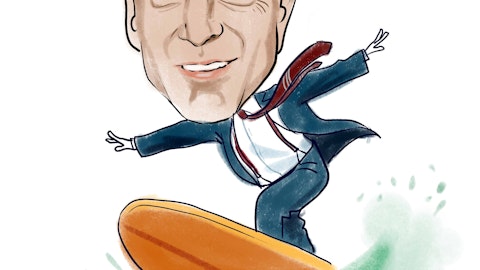If you are looking for something interesting to read then this list of bizarre brand extensions that befuddled consumers is the thing you were looking for.
There always comes a time when a company has an opportunity to expand its best and most lucrative brands into new products to ensure continued growth. And while there are no hard and fast rules for launching a brand extension, convention states that such an extension is more likely to succeed if it is related to the product the brand is most famous for.
That being said, a lot of companies try to buck those trends by launching weird brand extensions that make us do a double-take, perhaps with rolled eyes afterwards; Cheetos lip balm, anyone? How about women’s perfume from Zippo, complete with a bottle that looks like a lighter? These strategies can be successful, but a lot of these have been disastrous for the companies involved. Later on, we’ll see how weird brand extensions undertaken by companies such as American Outdoor Brands Corp (NASDAQ:AOBC) (formerly known as Smith & Wesson Holding Corp.), Dr Pepper Snapple Group Inc. (NYSE:DPS), Harley-Davidson Inc (NYSE:HOG), Colgate-Palmolive Company (NYSE:CL), and Molson Coors Brewing Co (NYSE:TAP) ended up faring.

Copyright: racorn / 123RF Stock Photo
Now, a brand extension, even a bizarre one, can be a powerful tool that boosts the revenue and prospects of a company. And some extensions make so much sense that you wonder why companies didn’t think of them sooner. For instance, Taco Bell’s tacos with shells made from Doritos chips. Such a product, which your drunken buddy from college may have conceptualized before, granted a new revenue opportunity for both brands. And then there are other bizarre brand extensions that somehow became ultra successful and enduring. You’re probably unsure if you know the Guinness brand more through their delicious dark beer (it’s called stout, your neighborhood beer snob would tell you) or the world records book that began in 1955 and is now the world’s best-selling copyright book (talk about a world record within a world record).
But not all bizarre brand extensions end up like Guinness’. In fact, most end up as fiascoes. When we compare the two successes above to the examples below, we’ll notice that there’s a key factor that distinguishes successes from failures: added value. Dominique Turpin, president of the IMD business school, noted that a lot of companies and marketers have put too much value into brand equity in terms of brand extensions, to the point that they neglected to provide meaningful value alongside the new products they were pushing. At the end of the day, a brand is only as strong as how the customer perceives it, and stretching it to uncharted territory, no matter how strong it is, will likely subject it to dents and bruises, especially if such a stretch is ill conceived, like these bizarre brand extensions that befuddled consumers on the following pages:





